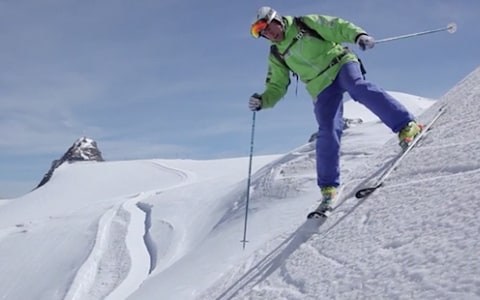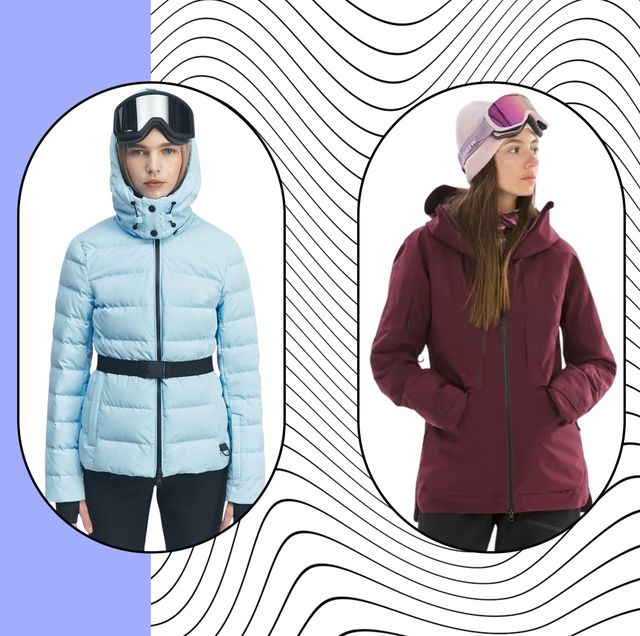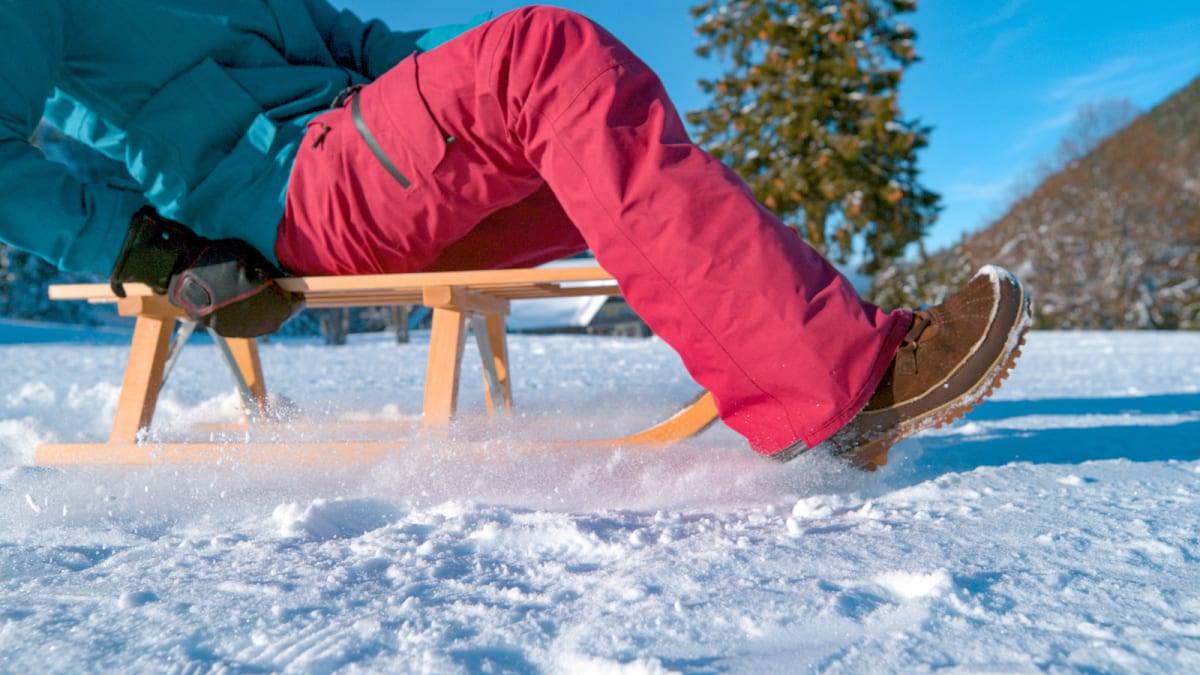
Since its conception, snowboarding has been around a long time. From being a novelty sport to becoming an Olympic sport, the sport has evolved through the decades. Snowboarders are now a majority of US visitors.
The history of snowboarding is littered with inventors. Some have had greater success than others. Jack Burchette was the pioneer of the snowboard. He was also the first to develop a plank made of plywood. In 1960, a new type was introduced to the snowboard market: the Snurfer. This was the first commercially produced snowboard.
Although snowboarding was initially not well-known, the sport became mainstream in the 1990s. It was quickly growing in popularity and one of the fastest-growing sports in the country. Because of a lack understanding, many ski areas wouldn't allow snowboarding. In recent years, most ski resorts have begun to allow snowboarding and the number of riders has grown exponentially.

Freestyle competitions are still the most common form of snowboarding. These competitions take place in the backcountry. They have become a worldwide staple. These are the most exciting events in the field. These competitions have become a source of controversy.
One of the earliest attempts to make a snowboard was with wood planks or aluminum. Some early designs included a single plank with an attached rope to provide balance. Doug Waugh developed the Pipe Dragon wooden-shaped board. Even though this is a recent invention, the idea that a board can slide down a snowy hill has been around for thousands.
While the idea of a Snurfer may have been around for some time, mass production did not begin until the late 60s. Brunswick Corporation was the first company to produce the Snurfer in large numbers after the original idea was sold.
A similar toboggan-like device called a Lazboard was popularized a few decades later. Riders used a stick on the front to steer the board and a rope on the rear to keep them upright. Although not quite as efficient as the 1990s snurfing device it is definitely an upgrade to the old toboggan.

Vermont hosted the 1982 first real snowboarding event. The King of the Mountain competition brought together a group of pioneering snowboard builders to compete in a fun competition.
The mid-20th century saw many great innovations, such as the first snurfing competition in 1968, the first snowboarding World Cup and the first Olympics that featured snowboarding. However, snowboarding wasn't really popularized until the late 1980s. A number of ski resorts ban the sport, mostly because they fear that it could cause damage to the slopes. The sport was allowed to be promoted in the late 1990s.
FAQ
When traveling, what should you remember?
Traveling can be stressful. You'll often find yourself in situations where you have little time to make decisions. You should be ready to improvise.
Sometimes you might find yourself stuck for days, weeks or months. If you've planned ahead, you'll have food, water, shelter, and a place to sleep. However, if you don’t plan ahead, you might need to improvise.
In these situations, you will probably need to rely upon what you know best. It means you have to be able to quickly make decisions based upon your experience and instinct.
Sometimes, however, you will not have any other choice. You might find yourself in an area without cell service, out of gas or robbed. In those situations, you'll have to adapt quickly to whatever situation presents itself.
The key to success is to stay calm, remain focused and act decisively. Don't panic. Instead, be calm and focus on what you can do.
You can choose which direction you want to go if you're lost among the woods. You can also eat berries and mushrooms if you feel hungry. Rainwater or melting snow are good options if you're feeling thirsty.
Rest if your tired. It's okay to bundle up if it is cold. You can wear a sweater if it's cold. You will feel happier no matter what, if your outlook is positive
Should I purchase travel insurance?
If you plan to do something adventurous, travel insurance is crucial. In fact, you should have cover for all types adventure sports.
You should make sure you have insurance if you ski. You should also consider getting coverage for theft, damage, and loss.
Cover for cancellation should be considered. This allows you to cancel your holiday without having to pay any penalties.
You should also ask for coverage for emergency evacuation. In the case of an avalanche and other natural disaster, you can be evacuated from the mountain.
What should vacationers bring?
Know what you want to do while on holiday. Not just packing clothes. You should also consider where you are going to be staying and for how long.
Think about the activities that you are interested in. If you plan to visit exotic locations, you might consider scuba diving. Participating in local festivals or events is a good idea if you're planning on staying somewhere for a longer time.
You should let the people who are going to be caring for you know if you have any medical issues.
What is the first thing you should do upon arriving at your travel destination
A plan should be prepared for each step of your journey. It will let you know what to expect, and where to go next.
You need to plan ahead to ensure you don't miss anything important.
If you plan to spend more than one day in a given city, it is important to research the museums, parks and landmarks that you would like to see.
It might be worth looking into getting a map for the area or reading about the history of this region.
Which countries produce the best food?
The food available in each country is different. It's not easy to tell which countries have the best cuisine.
But we can tell you which countries have the most delicious food!
TripAdvisor users ranked these three countries as the top three:
-
Italy - Italy has been voted number 1 by TripAdvisor users for its amazing food.
-
France – France was ranked 2nd because of its rich cultural and culinary heritage.
-
Spain - Spain came 3rd due to its beautiful beaches, great weather, and wonderful people.
How much luggage should I take with me?
The length of your trip determines how much luggage you should take. Hand baggage is usually limited to 20 kg if you travel by plane. You will need more space if you travel by train or bus.
At the airport, you will receive a form that you need to complete with your details. This form will contain information about your flight, such as the weight and assistance required when you check them in.
This should be checked before you leave home. If you don’t check it, you might end up waiting hours for everyone else to do so.
It is best to travel light because you never know what might happen. It is possible to lose your bag and not have something to wear.
Statistics
- Case in point: the private island of Ilha Caldeira, less than seven miles off the coast as part of the Primeiras and Segundas Archipelago, is located within the marine-protected area with 20 percent of the country's intact living coral. (travelandleisure.com)
- No Checked Bags: No Alcoholic beverages with more than 70% alcohol (over 140 proof), including grain alcohol and 151 proof rum. (tsa.gov)
- Pack sweaters, jackets, and underwear in reusable compression bags creating up to 75% more space in your luggage. (wikihow.com)
- Alcoholic beverages with 24% alcohol or less are not subject to limitations in checked bags. (tsa.gov)
- Alcoholic beverages with more than 24% but not more than 70% alcohol are limited in checked bags to 5 liters (1.3 gallons) per passenger and must be in unopened retail packaging. (tsa.gov)
External Links
How To
What are the best travel tips to beginners?
You can travel is an exciting adventure, but there's a lot you need to be aware of to make sure you have a safe and enjoyable journey.
Here are some basic tips to help you plan your next vacation.
-
Book early. The price of a booking is lower if it's made in advance. You'll also save money by avoiding last-minute deals offered by hotels and airlines.
-
Stay-at-budget accommodations. The best value for money is found in the cheapest hotels. They are usually close to public transport and shopping centers.
-
Don't overpack. Keep it light. Keep room for souvenirs. Take clothes that fit well.
-
Use common sense. Be careful if you're on your own. Avoid dangerous neighborhoods and areas with high levels of crime.
-
Take precautions against theft. Keep valuables away from prying eyes. Never leave anything valuable unattended when you go swimming.
-
Cash is a dangerous thing. Thieves often target tourists in foreign cities. You can keep your money hidden by using ATMs within banks and guarded facilities.
-
Be familiar with your surroundings. Before booking a hotel, ensure you know how to get around using public transport. Find out about tourist attractions, restaurants, and other sights.
-
Learn about safety. Learn about local laws, customs, and culture before you arrive.
-
Have fun. Enjoy it, no matter how difficult. It's worthwhile.